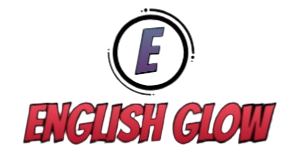
verbs that start with a
Introduction: The Importance of Verbs That Start With A
Verbs are the engines of language, driving sentences and giving life to ideas. Among them, verbs that start with A are versatile and can help writers, students, and professionals express actions more precisely. Whether you’re crafting a story, writing an essay, or improving your English skills, knowing a wide range of A-verbs can enhance your writing style. In this guide, we’ll dive into the most useful verbs that start with A, explain their meanings, and provide practical examples to help you master their usage.
Why Learning Verbs That Start With A Matters
Focusing on verbs that begin with the letter A offers several advantages:
-
Expands vocabulary: You’ll have more choices when writing or speaking.
-
Improves sentence variety: Using different verbs prevents repetition and monotony.
-
Boosts clarity and precision: Specific verbs convey actions more effectively.
-
Enhances creativity: Unique verbs can make writing more engaging and expressive.
Common and Essential Verbs That Start With A
Here is a curated list of commonly used A-verbs along with their meanings and examples:
-
Accept – To agree or receive something willingly.
Example: She accepted the invitation to the conference. -
Achieve – To successfully complete a goal or task.
Example: They achieved remarkable results in their project. -
Act – To perform or take action.
Example: He acted quickly to solve the problem. -
Add – To include something extra or combine.
Example: Please add your signature to the document. -
Adjust – To modify or fine-tune for better results.
Example: I adjusted the settings on my computer for faster performance. -
Admire – To look at with respect or appreciation.
Example: She admired the sunset from the balcony. -
Admit – To confess or acknowledge.
Example: He admitted his mistake during the meeting. -
Advise – To offer guidance or recommendation.
Example: The mentor advised her on career growth strategies.
Lesser-Known Yet Powerful Verbs That Start With A
Expanding beyond common verbs, here are some lesser-known A-verbs that can enrich your writing:
-
Analyze – To examine something carefully.
-
Anticipate – To expect or look forward to.
-
Arise – To emerge or appear.
-
Assemble – To gather or bring together.
-
Ascend – To move upwards.
-
Assure – To promise or make certain.
-
Allocate – To distribute resources or duties.
-
Articulate – To express thoughts clearly and effectively.
Using these verbs strategically can make your writing more professional and precise.
Tips for Using Verbs That Start With A Effectively
-
Context is key: Not every verb fits every situation; choose the one that aligns with your intended meaning.
-
Avoid overuse: Mixing A-verbs with other verbs keeps your writing varied.
-
Use active voice: A-verbs often work best in active voice for stronger, clearer sentences.
-
Practice regularly: Writing sentences or paragraphs using A-verbs will help reinforce your memory.
-
Pair with descriptive words: Combining A-verbs with adjectives or adverbs can make writing vivid.
Examples of Sentences Using Verbs That Start With A
-
She anticipated the challenges and prepared accordingly.
-
The committee allocated funds for the new project efficiently.
-
He admired the dedication of his teammates.
-
We need to adjust the plan based on the latest data.
-
The scientist analyzed the experiment results carefully.
These examples demonstrate how incorporating A-verbs can make your sentences dynamic and precise.
Fun Ways to Memorize Verbs That Start With A
-
Flashcards: Write the verb on one side and its meaning on the other.
-
Sentence practice: Create a story or paragraph using at least five A-verbs.
-
Word games: Play vocabulary games focusing on A-verbs to make learning interactive.
-
Thematic lists: Group verbs by category (e.g., emotions, actions, thinking) for easier recall.
Conclusion: Mastering Verbs That Start With A
Learning verbs that start with A is an essential step for anyone looking to improve their writing, communication, or English proficiency. By incorporating these verbs into your vocabulary, you can write more clearly, creatively, and effectively. Start with common verbs, explore less-known ones, and practice using them in your sentences daily. The more you use them, the more natural they will become in your writing, enhancing both style and impact.





